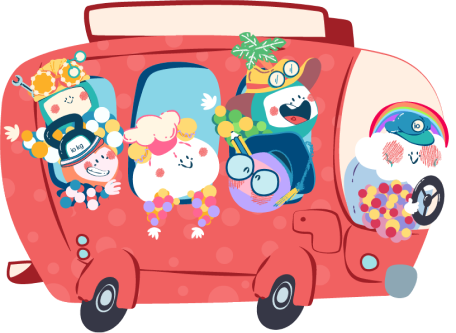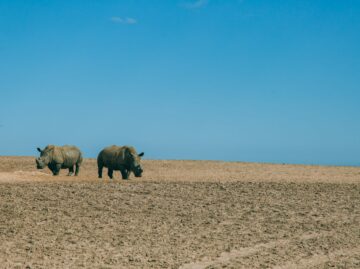You might have seen horses in fairy tales, mightily carrying the prince on his way to save the princess. You might even see them in zoos, or parks, just walking around waiting for whoever might come near them. You might even have an experience riding one!
But other than all these ideas of horses, there are still a lot of interesting facts you can know about them. From their average age, diet, breeds, to unique things about their bodies, horses are definitely more than just their speed! They are interesting creatures worth knowing more about.
This is no race, so take your time in discovering more about horses!
Horse Facts That Will Hook Your Kids
Imagine if the next time your kids see a horse, they already know more than the usual facts that they’re fast and can be friendly to people. Your kids will surely appreciate them more! Let’s get the learning started with these horse-related fun facts.
Horses Can Sleep While Standing And Lying Down
Courtesy of David Dibert
Have you ever dreamt of having the ability to sleep anywhere, anytime, and any position you want? Horses don’t have to dream about this, because they can!
While horses would still need to lie down for a minimum of thirty minutes daily to achieve the entirety of their sleep cycle, they can still sleep and rest while standing up. This is all thanks to a locking system in their legs that keeps them upright even when the rest of their body is already deep in slumber.
Not everything about a horse’s bone structure is ideal, though. They might have a special leg-lock system, but they have no collarbones! Their shoulders are attached to the rest of their body by just muscles and ligaments.
Horses’ Head Are More Teeth Than Brain
Courtesy of Brenda Timmermans
You would have noticed a lot of teeth every time you see a horse smile, but do you wonder how many there are exactly?
Adult male horses have an average of 40 teeth, while females have a little less with 36 teeth.
With all these teeth, you could just imagine the amount of saliva they produce. You might want to take a gulp before reading on – it’s 10 gallons of daily saliva! To help you picture it out, that’s 40 times the amount humans produce. This is made possible by at least five gallons of water they drink each day.
They have smaller brains than humans do though, with just half the weight at 623 grams. But when it comes to heart, horses’ are literally 10 times bigger!
Horses Can’t Vomit
Courtesy of Barbara Olsen
You would not want to make a horse drunk – they cannot vomit even if they would like to! Horses’ stomachs would burst first before they get to vomit!
A horse’s digestive system is a one-way road, which means that nothing from their stomach can make its way into their mouth. The cardiac sphincter muscles around their esophagus makes this impossible. This also makes it impossible for them to breathe through their mouths.
This is one of the main reasons why we should always be careful with what we feed horses, regardless if these are the ones in the parks or those in the zoos.
More Than 600 Breeds And Types of Horses Roam the World
Courtesy of Helena Lopes
Eohippus, the first horses, traveled the world 55 million years ago. From then on, more than 600 breeds have evolved and ventured into different parts of the planet.
As a result of these ventures and fueled by biological developments, some horses change in color as they grow. Most white horses used to have a darker color at birth, which turned lighter as they age.
These horses live up to 25 to 30 years old. Other breeds which have higher average life expectancy are Icelandic Horses, Haflinger, Appaloosa, Quarter Horse, and those of the Arabian breeds.
All horse breeds can be found here: All Horse Breeds – Complete List of Horse Profiles – DiscoverTheHorse — DiscoverTheHorse
The Oldest Horse Was 62 Years Old
Courtesy of Santiago Sauceda Gonzalez
While we’re on the topic of lifespans, let us introduce the oldest horse to ever live. He lived for 62 years, twice the average lifespan of most horses!
Old Billy, an 18th century Shire-type horse from England, lived from 1760 to 1822. He sported a brown coat with a remarkable white blaze.
After Old Billy, the second oldest was Sugar Puff, who died last 2007. He was also from the United Kingdom, where he helped in teaching kids how to ride a horse. Sugar Puff lived for 56 years.
You can learn more about the world’s oldest horses here: 10 Oldest Horses in the World – Oldest.org
Horses Live In Herds
Courtesy of Jean Alves
The H in horses might as well stand for herds, as this is how most horses survive.
Living alone can be stressful for a horse, and even domesticated ones prefer companions. Usually, a member of the herd stays on the lookout while others graze the area or sleep. This increases their chance of survival.
In other cases, a horse’s companion doesn’t have to be another horse! It can be a donkey, a goat, or even a dog, for as long as they would not have to live alone.
Horses Can Move Their Eyes Separately
Courtesy of Pixabay
Because of the position of their eyes, horses can focus on two different things at the same time. These visions aren’t as clear as humans’ though! Horses have a hard time seeing moving shapes, so they can easily be spooked at sudden movements.
But when it comes to range, their vision is impressive. They can easily detect motion, which allows them to immediately run in the presence of a predator. They can see nearly four times wider than humans!
Here’s a pro tip to know where horses are looking at – their ears will point in the direction where their visions are!
Horses Spend 16 to 18 Hours Grazing
Courtesy of Pixabay
Horses don’t scan the grasses just for fun, they actually need to eat from time to time! An hour or two of having no food in their stomach can already upset a horse. Their stomachs need to always contain food so it can perform its function!
If horses aren’t fed for too long, they might develop stomach ulcers. This is common with racing and performing horses who aren’t allowed to graze as they please.
Frequently Asked Questions on Horses
How long do horses live?
Domesticated horses who receive the proper medical attention and basic needs live longer than horses in the wild who are more exposed to environmental threats. These domesticated horses can live for 25 to 30 years.
How intelligent is a horse?
They might not be able to answer addition problems through the number of barks, but horses are actually among the most intelligent animals! They have long memories and can be taught quickly. Horses can also figure out things on their own – like going out of their pen to a field!
Are horses color blind?
Horses are not color blind, but they have difficulty in distinguishing colors from each other. They can easily tell yellow and blue, but they have a hard time identifying the colors red and green.







